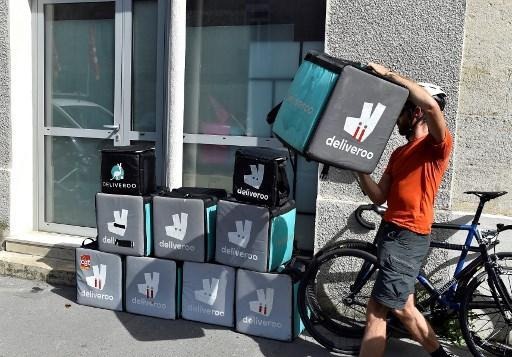An earlier verdict on the self-employed status of Deliveroo couriers is being appealed by socialist trade union ABVV and the Brussels labour auditorate.
The French-speaking labour court in Brussels declined to classify the food delivery service workers as employees entitled to social benefits and labour protections in December of last year, upholding their status as independent contractors.
The court acknowledged that the workers have an economic dependency on the gig work platform, but argued that couriers have the freedom to organise their work themselves because they can choose to either accept or refuse deliveries.
Self-employed, but controlled by Deliveroo's algorithms
Critics point out that while couriers can technically decline deliveries, they’re often punished for doing so by algorithms and incentivised into working during specific windows of time via the use of promotions.
“For ABVV and the couriers it remains clear, despite the negative ruling: Deliveroo works with pseudo self-employed workers. The couriers of the company are anything but free,” the union said on Tuesday.
Several Deliveroo couriers have joined them in the lawsuit against Deliveroo. They point to a provision in Belgian law that bans employers from treating as freelancers any workers who fulfil all of the conditions of a fully-fledged employee, including a fixed place of work, regulated hours, a fixed salary and so on.
Related News
- Deliveroo warns of ‘negative consequences’ from EU law changes
- Long hours, unstable wages: a poor deal for food couriers
- Sustainability means long-term employment contracts, Brussels company says
The Deliveroo couriers are “directed, controlled and sanctioned by the Deliveroo algorithm,” says ABVV chairman Frank Moreels.
“Among other things, they cannot set their own prices and their invoices are drawn up by Deliveroo itself every month.”
Moreels says the ABVV will “continue to fight for the correct status of couriers and the accompanying pay and working conditions.”

